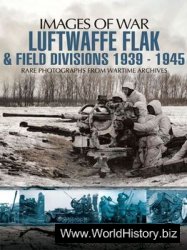The armistice agreement with Egypt was signed on the Island of Rhodes on 24 February 1949. The front-lines as they were at the end of the fighting became the armistice borders, and the strip of coastline at Gaza remained in the hands of the Egyptians. Israeli control of the Negev was now unquestioned. The besieged Egyptian brigade at Faluja marched out with its arms, receiving full military honours from the Israelis, and returned to Egypt. Then followed the armistice agreement with Lebanon on 23 March 1949, Israeli forces withdrawing from the area held in Lebanon; the armistice agreement with Jordan on 3 April 1949; and finally the armistice agreement with Syria, on 20 July 1949, whereby Syria withdrew from the Mishmar Hayarden bridgehead, which was to remain demilitarized.
The War of Independence was over. The State of Israel was established within borders constituted by the lines agreed upon in the armistice agreements. These agreements, which were envisaged as a prelude to a peace treaty to be signed within six months, were to continue for years and indeed were to lapse because they were not honoured by the Arab signatories. Every compromise proposal towards peace proposed by the Israelis over the years was rejected out of hand by the Arabs. The crux of the problem became, and remained, the refusal of the Arab States to recognize the right of the Jewish State in the Middle East to exist.
Several attempts were made over the years by the Palestinian Arabs to assert themselves, but in vain. In 1949, the representatives of the Palestinian refugees attempted to bring their case before the Palestinian Conciliation Commission meeting in Lausanne, and sought a compromise with Israel; but their action was disowned by the Arab governments. On numerous occasions, Ben-Gurion offered to meet the Arab leadership (as indeed did all future Israeli prime ministers) in order to work out a compromise, but until President Sadat’s historic trip to Jerusalem in November 1977 no Arab leader was prepared to take such a step.
Two large refugee problems were created as a result of the conflict, each encompassing approximately 800,000 persons: a Palestinian Arab refugee problem and a Jewish refugee problem, the latter created upon the establishment of the State of Israel when the Jewish populations in Arab countries were exiled from their countries. The Jewish people and the State of Israel solved the Jewish refugee problem rapidly and reestablished the Jewish refugees, primarily in Israel. But the Arab governments chose to perpetuate the Arab refugee problem, to use the Arab refugees as political pawns over the years, and to allow generations to be born and to grow up in miserable refugee camps in the Middle East
Supported by international charity. (It is sobering to reflect that just one day’s Arab oil revenues, even in 1949, would have sufficed to solve the entire Arab refugee problem. But this was not to be.)
The Israeli nation had been forged in the heat of a bloody war. A heavily outnumbered populace had defended itself against seemingly overwhelming odds, losing in the process one per cent of its population. In Israel’s War of Independence, 6,000 were killed, of whom over 4,000 were members of the armed forces. (This was as if 2,500,000 people had been lost in battle by the United States, or 500,000 people by Great Britain, or
35,000 people — almost the total of American dead in the Vietnamese War — by Israel today.)
Israel’s victory was the result of the self-sacrifice and determination of a people to fight for its existence. The spirit that animated the people and the courage it reflected were the function of a rare form of determined and inspiring leadership. David Ben-Gurion belongs in history to the class of Churchill, Roosevelt and De Gaulle — a powerful, charismatic leader with sufficient vision to see several steps ahead and to grasp the basic issues facing the nation, with sufficient courage to lead against the most impossible odds and to demand the most extreme sacrifices from his people. He was, moreover, endowed with sufficient personality and power of leadership to weld together elements of different outlooks and philosophies to one common purpose. He had the necessary historic vision and understanding to appreciate already in late 1945 that there was no chance of an agreed settlement with the British, and that therefore the Jews in Palestine must prepare for the creation of a national army and for a full-scale war. Had he not grasped the significance of the new developments, events would have overtaken the Jews of Palestine and found them completely unprepared, both politically and militarily. While Ben-Gurion’s colleagues, and indeed his political opponents, were thinking in terms of commando raids and small-unit warfare, Ben-Gurion realized that there would be no compromise and that he would have to go the whole way. Above all, he knew what he wanted, and was unwilling to compromise — hence his insistence at all stages on preparation for an allout war, and his clear understanding of the meaning of statehood, which at times clashed with the confusion and contradictions of some outdated Zionist ideologies. He made mistakes, but his faults were those of a very great man. Without his foresight, imagination and determination, it is doubtful whether disaster could have been averted.
In retrospect, with a number of outstanding exceptions such as Yigal Allon and Shimon Avidan, the Israeli generals were inexperienced and unimaginative, but this failing was compensated to a degree by the overpowering personality, ability, vision and understanding of the issues by Ben-Gurion, and by the extraordinary bravery of the Israeli military leadership in the field. The main brunt of the fighting in the War of Independence was borne at battalion and company level. The norms of leadership, the personal example and the self-sacrifice that were later to characterize Israeli officers and NCOs in battle were established in the War of Independence. Many outstanding generals who were to lead the Israel
Defence Forces in four more wars, emerged from the ranks of the battalion, company and platoon commanders in the War of Independence. What was to all intents and purposes a partisan army based in the main on the Haganah, to which were added elements of the Irgun and Lehi, grew into a conventional army in the heat of battle. The basically civilian nature of the force that fought for the villages, homesteads and towns of Palestine set the future pattern. The IDF continued to be a civilian army comprising a comparatively small regular component and a large reserve force. This very effective organization of a reserve army was created, after the establishment of the State, by General Yigael Yadin, the second Chief of Staff of the armed forces. Based on reservists, it gave rise to the comparatively ‘easygoing’ atmosphere for which the Israeli Army was later to be noted. The formative period of the IDF, fighting for the life of a nation in a war of bitter struggles and much suffering, left its mark: the fact that war was to continue sporadically for the next 30 years before the first peace treaty with an Arab country would be signed dictated the character of the armed forces, which saw little purpose in outward trappings and military pomp, and viewed the Army as a fighting machine, a necessary evil with which to defend independence, and no more.
The disadvantages under which the Israeli Army operated during the War of Independence — its weakness in manpower, its lack of modern weapons, and the necessity to fight on many fronts at the same time — evolved a military philosophy based on flexibility, the use of surprise and innovation. Fighting by night became almost second nature to the Israeli forces, because darkness neutralized to a degree the advantages enjoyed by the Arab forces. Indeed, the Israeli attacks during the War of Independence were nearly all mounted at night. Speed, commando-type operations, the use of outflanking manoeuvres — all of these combined to emphasize the character and mode of operation of the emerging Israeli armed forces. Coupled with this was a flexibility of thought that encouraged the leader in battle to adapt himself to the vicissitudes of war at a moment’s notice and to take advantage of changing circumstances in the field. A rigid approach and over-dependence on higher command had no place in the Israeli forces. Thus emerged the Israel Defence Forces, which was to become a major military factor in the Middle East, a factor that would not only be of local significance but would also become an important strategic element in the region.
On the opposing side, the Arab Legion stood out as the outstanding army. British-officered and led as it was; but even after the British left some years later, it continued to be the most effective Arab army, well led, brave and satisfactorily organized. All the Arab armies apart from Kaukji’s Arab Liberation Army proved to be highly effective in defence, and this was to characterize them over the coming years. But their failing in attack arose out of the fact that, when their set-piece attack encountered unexpected obstacles, the junior leadership in the field was incapable of adapting itself rapidly enough to the changing circumstances of the battle. Above all, the inter-Arab bickering — which over the years was to erupt sporadically in internecine strife — plagued the Arab forces. While they all
Fought against the Israelis, they were inevitably looking over their shoulders at their allies in an atmosphere of mistrust. They could thus never really take full advantage of their overwhelming superiority, while the Israeli forces, operating on internal lines of communication, were able to take advantage of this situation, switching forces from front to front and developing attacks against one Arab force conscious of the fact that there would be no concerted military pressure brought to bear on them on other fronts.
In the War of Independence the fate of Israel hung precariously in the balance. It was saved by the great and historic leadership of Ben-Gurion, leading a nation endowed with a desire to live, and prepared to make every sacrifice to achieve this end. That sacrifice was made in the War of Independence, but it would continue to be exacted in the years to come.




 World History
World History









